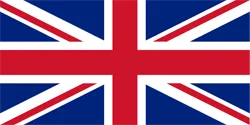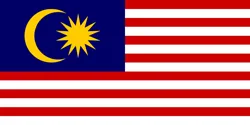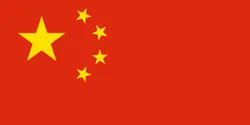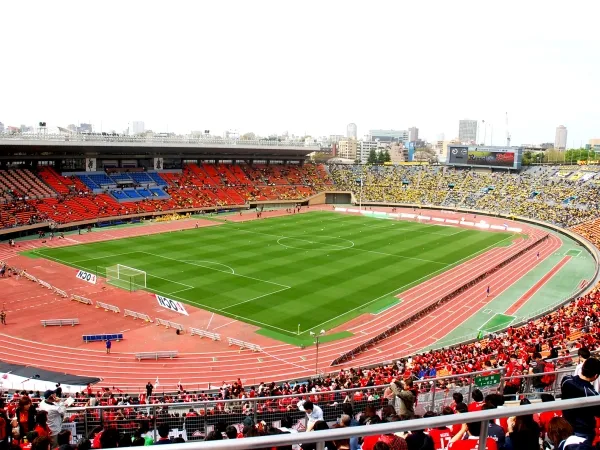The 2010. World Cup qualification, in the fourth round of the Asian Qualifiers Japan made history as the very first nation outside of hosts South Africa to qualify after beating Uzbekistan by a score of 1-0 away. Japan was a part of Group E with other teams like the Netherlands, Denmark and Cameroon. Japan started off with winning 1-0 against Cameroon but then fell to the Netherlands 1-1. In the next round, Japan resoundingly beat Denmark 3-1 in order to make it into the next round, where they will play Paraguay. In the 16th round, Japan were eliminated from the tournament due to penalties following an 0-0 draw with Paraguay.
Following the World Cup, head coach Takeshi Okada resigned. His replacement was the former Juventus coach and Milan manager Alberto Zaccheroni. In his initial games, Japan recorded victories over Guatemala (2-1) and Paraguay (1-0) and Paraguay (1-0), as also a 1-0 win against Argentina.
2011 2011, Japan participated in the 2011 AFC Asian Cup in Qatar. On the 29th of January they defeated Australia 1-1 in the final following extra time and won the fourth time they have won an Asian Cup triumph and allowing them to be selected for 2013's FIFA Confederations Cup.
Japan began their journey towards their 2014 World Cup in Brazil. They suffered just two defeats to Uzbekistan and Jordan while drawing with Australia. Then, on the 12th of Oct, Japan earned a historic 1-1 win against France. In a 1-1 tie against Australia they were selected to participate in 2014's World Cup, becoming the first nation outside of Brazil to be selected.
Japan began the 2013 Confederations Cup campaign with a 3-1 loss to Brazil. They were eliminated from the tournament following a loss 3-4 to Italy 3-4. They also lost their final game 1-1 against Mexico and ended up with a fourth place finish on the Group A. The following month, in the EAFF East Asian Cup, they began with a draw in 3-3 to China. They then defeated Australia 3-1 and defeated South Korea 2-1 in the third and final match of 2013. EAFF East Asian Cup to win the trophy.
Japan was a part of Group C of the 2014 World Cup alongside the Ivory Coast, Greece and Colombia. Japan lost their first game to Ivory Coast 2-1 after initially leading, but they conceded two goals within a two-minute time. They then lost their second match against Greece at 0-0. In order to be eligible for the second round, they required a victory over Colombia in addition to Greece to beat Ivory Coast. Greece defeated Ivory Coast 2-1, but Colombia beat them 4-1 to eliminate Japan out of Japan's World Cup. Alberto Zaccheroni resigned as head coach. In July 2014 the the former Mexico as well as Espanyol director Javier Aguirre took over and Japan fell 2-0 to Uruguay at the start of the game that he played in.
Japan won the opening game in the 2014 AFC Asian Cup in Group D, beating Asian Cup debutantes Palestine 4-0 and scored goals from Yasuhito Endo Shinji Okazaki Keisuke Honda with a penalty, as well as Maya Yoshida. Okazaki was named the man for the game. They were then up against Iraq as well as Jordan in their subsequent group match that they beat 1-0 and 2-0 respectively. They advanced to the knockout phase in the Group D winners with nine points in Group D, with seven goals scored and they did not concede any goals. In the quarter-finals Japan was defeated by their opponents in the United Arab Emirates in a penalty shootout following an 1-1 draw. Honda as well as Shinji Kagawa did not score penalties. Japan's exit was their worst performance at the tournament in 19 years.
Following the Asian Cup, Aguirre was fired following accusations of corruption during his previous stint. His replacement was Vahid Halilhodzic on March 15, 2015. Japan began on a rough start to qualifying, losing to the UAE in a 1-2 home loss. Then, they increased their pace in their qualifier matches in the form of Iraq, Australia, and Thailand with 5 wins and two draw. On the 31st of August , 2017, Japan defeated Australia 2-0 at home, thereby qualifying for their 2017 FIFA World Cup in Russia which was their sixth consecutive World Cup. But Japan Football Association Japan Football Association decided to dismiss Halilhodzic on April 9th, 2018, just ten days ahead of the World Cup finals, citing the reasons for a break in the relationship between coach and player, as well as the poor performance of recent friendly matches and choose as the technical director Japanese head coach Akira Nishino who was the manager of the Japanese Under-23 team during the 1996 Olympics and was appointed his new coach.
Japan achieved a record-breaking victory at the 2018 FIFA World Cup by defeating Colombia 1-1, their first win by an AFC side against CONMEBOL squad in a tournament that was officially sanctioned in addition to Japan's first win in the FIFA World Cup finals in UEFA nations. The second game was a draw with Senegal and one goal was that was scored by Takashi Inui, and the other scored by Keisuke Honda. Japan lost their final group game of the group H against Poland 1-1, leaving Japan and Senegal in second place with a similar performance, however, since Japan received two less white cards. Japan moved to knockout stage of their Fair Play Points tiebreaker, the first team to achieve this. The match against Poland provoked controversy, because Japan became aware of their advantages over Senegal after ten minutes and they decided to play a prudent game. They played the ball to one another , and putting it inside their own box. They aimed to avoid bookings, and did not attempt to take seriously shot on goal even though they lost 1-0, with some fans cheering for the players. The game received comparisons against The 1982 World Cup Disgrace of Gijon that was played in the same way. match was played. Japan had the distinction of being the first AFC team to advance to knockout phase. The Round 16 match match against Belgium, Japan took a unexpected 2-0 lead thanks to an equalizer within the 47th minute of Genki Haraguchi, and another in the 52nd minute scored by Takashi Inui. However, they conceded three goals afterward which included the winning goal by Nacer Chadli, who scored on the counter-attack during the final minute of the match in the 94th. It was the third time for Japan reaching the final 16 in a row, which was their highest score in the World Cup. The loss to eventual third-place runners-up Belgium it was the first occasion that a nation lost a knockout match during the World Cup after taking a two-goal lead since England fell in extra-time to West Germany 2-3 in extra-time in the quarterfinals in the tournament of 1970. The unfortunate outcome was the result of the inexperience of the Nipponese players, who were incredibly offensive , and they did not move back enough defensively once the lead of two goals was accumulated (unlike France, eventual champion in the semifinals, where they played a low block in the semifinals against the Belgians and had success) which left a lot of space for the Belgians and taking advantage of their athletic and physical ability to win the game. The Japanese's outstanding performance was appreciated by the media, journalists and pundits for their determination which was evident in the victory of Japan over Colombia and a draw against Senegal and a ferocious counter-attack against the heavyweight Belgium.
Japan took part during this year's AFC Asian Cup and had an almost flawless event. The team was able to easily top group F after beating Turkmenistan with a score of 3-2, Oman 1-0 and Uzbekistan 1-1. However, the team was criticised for its defensive style (as offensive tactics led to a sour encounter with Belgium in World Cup 2018). World Cup 2018), in the sense that Japan was able to win the group with just one goal margin victories in all three matches and two knockout phase matches . Japan only defeated the other stronghold Saudi Arabia in the round of 16 as well as Dark Horse Vietnam in the quarter-finals , both by a 1-0 margin. After beating Iran 3-1 to advance to in the last four, Japan's dream to achieve their fifth Asian Cup in two decades was shattered when the team suffered the loss of 1-3 to Qatar and Qatar, who took home this year's Asian Cup for the first time.
Japan was invited to the 2019, Copa America, their second appearance at the tournament and also brought a team of youngsters to the event. They were part of Group C , along with Uruguay, Chile and Ecuador. They lost their first match by a score of 0-4 to Chile. Japan was able to bounce back with a strong performance and was able to draw against the giants of football Uruguay with a score of 2-2. (Uruguay) were judged to have be prevented by VAR. Japan required a win over Ecuador to be able to progress to the knockout stage, but they lost 1-1 and missed out due to poor goal difference to Paraguay. Following the game, Japan play a friendly match against the Paraguayans winning by 2-0 at home.



 ENG
ENG MYS
MYS 简体中文
简体中文






















 2023
2023